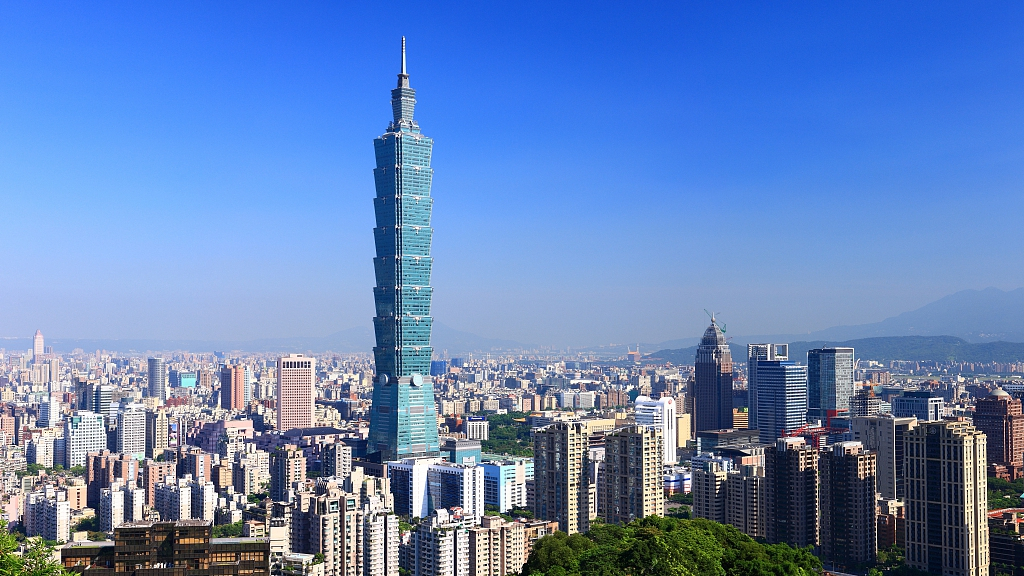
The Taipei 101 skyscraper commands the urban landscape in Taipei, Taiwan. [Photo/Xinhua]
This is an editorial from China Daily.
It seems that a bell has rung in Washington and the US administration at least recognizes the sensitivity of House Speaker Nancy Pelosi's proposed visit to Taiwan. US President Joe Biden said on Wednesday that US military officials believe it is "not a good idea" for Pelosi to visit the island at the moment.
Although Biden did not explicitly say that Pelosi will not go, his remarks give her a face-saving justification for her to drop her wild plan.
A visit to Taiwan by Pelosi would undoubtedly trigger a strong response from Beijing, which said on Tuesday that it would respond with "forceful measures" should Pelosi visit the island.
Repeated US provocations, such as sending US warships to sail through the Taiwan Straits, continuing arms sales to Taiwan, and visits to Taipei by high-ranking US officials and prominent lawmakers, have already made the situation increasingly complicated and combustible. Under such circumstances, as Beijing has made clear, a visit by Pelosi to Taiwan would be a highly provocative, even confrontational, move.
The clouds that are gathering after the announcement of Pelosi's proposed visit would herald a storm if her visit goes ahead.
Speculation had been building that the two leaders would talk directly, as there are clearly compelling issues, on both the bilateral and international fronts, that the two leaders need to discuss.
Whether Biden's implicit "no-go" message to Pelosi stems from his administration's better understanding of the sensitivity of the Taiwan question or is a temporary expediency in light of the expected telephone talk between the two leaders, it is certainly wise counsel that Pelosi should heed.
There appears to be a broad bipartisan consensus building in Washington that the US must support the "independence" of Taiwan with military force and not just words. This has nothing to do with the status of the island. Instead it is a symptom of their hawkish desire to use force to reassert the US' own status in the region.
Such a mindset is not conducive to the US acting rationally. There are no doubt some, ensconced in the insulating comforts of material well-being and their notions of what it means to be American, who think a Ukraine-style scenario involving Taiwan, or the threat of such a scenario, would be just the ticket to put Beijing in its place.
They need to get a grip on reality. Beijing will never back off from its stance over Taiwan as it is a question of sovereignty and territorial integrity, on which it has no room for compromise.
This is the "only choice" as Chinese Defense Minister Wei Fenghe stated clearly at the Shangri-La Dialogue in Singapore last month, "we will fight at all costs and we will fight to the very end."
That the US military seems to be advocating prudence and restraint suggests that they have a better understanding of the actuality of the situation than the political hawks in Washington who are trying to control the policy debate.

 中文
中文



